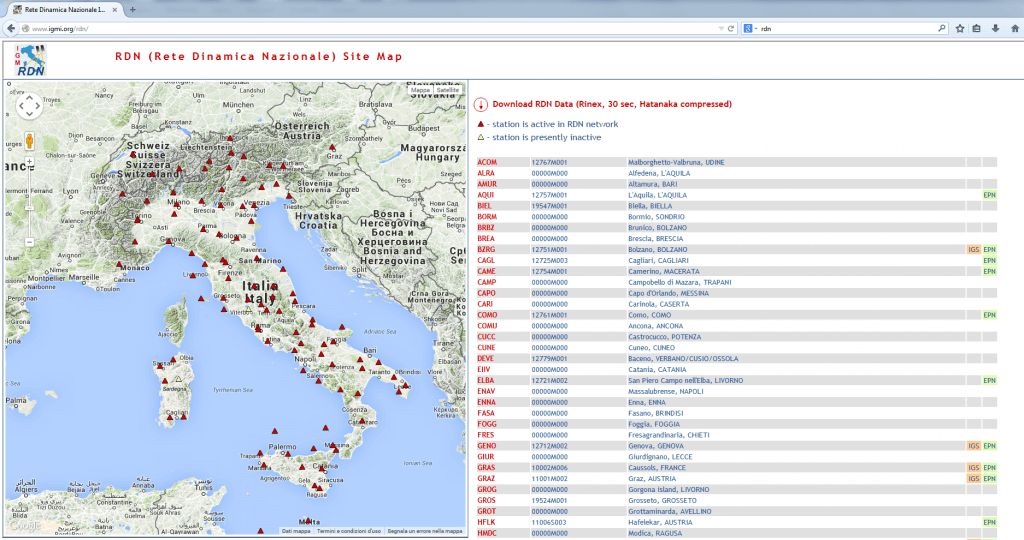GReD studies and develops state-of-the-art GNSS value-added applications, data analysis and quality control services and software solutions achieving high precision also by using low-cost single-frequency receivers.
Dynamic National Network (RDN) quality control
In order to obviate the IGM95 obsolescence, in 2007 IGMI has began a new process to update the national network from a static to a permanent reference frame: this was done by the institution of an official national GNSS permanent network, adjusted in ITRF2005 and distributed in ETRF2000 (t0 = 2008.0). In particular, the following operations were performed.
- definition of a national permanent network of GNSS permanent stations, called Rete Dinamica Nazionale (Dynamic National Network, RDN),
- adjustment of the network in ITRF2005 and in ETRF2000,
- connection and adjustment in RDN of IGM95, in order to update its benchmarks coordinates.
In details, RDN is composed of about 100 permanent stations, selected among the Italian existing stations by following the criteria of homogeneous distribution and quality. The network was processed for one month in the global ITRF2005 reference frame. These estimated coordinates were transformed to ETRF2000 at epoch 2008.0, by applying the official international transformation published by EPN. therefore, IGM95 baselines have been again adjusted in ETRF2000-RDN to newly estimate IGM95 benchmarks coordinates in ETRF2000. The old IGM95 set of baselines has been connected to RDN by surveying some baselines from 4/5 RDN permanent stations to at least three IGM95 nearest benchmarks each. After that, all the original surveyed IGM95 baselines have been adjusted again using the RDN ETRF2000 coordinates as constraint.

Since its institution, RDN is monitored every year with some adjustment sessions composed of 4 weeks every 3-4 months.
In order to cross-validate its results, IGMI asks the University of Padua, the University of Bologna and DIIAR – Politecnico di Milano and GReD to independently adjust RDN, through a convention with CISIS (Centro Interregionale per i Sistemi informatici, geografici e statistici). GReD carries out the adjustment operations as consultancy service for Politecnico di Milano, that verifies and validates the results. The process is performed with Bernese GPS Software 5.2 and RegNet as management software.
Further information on RDN and its institution can be found in the Ph.D. Thesis of Dr. Stefano Caldera “GNSS Permanent Networks Monitoring: Problems And Solutions” (link).